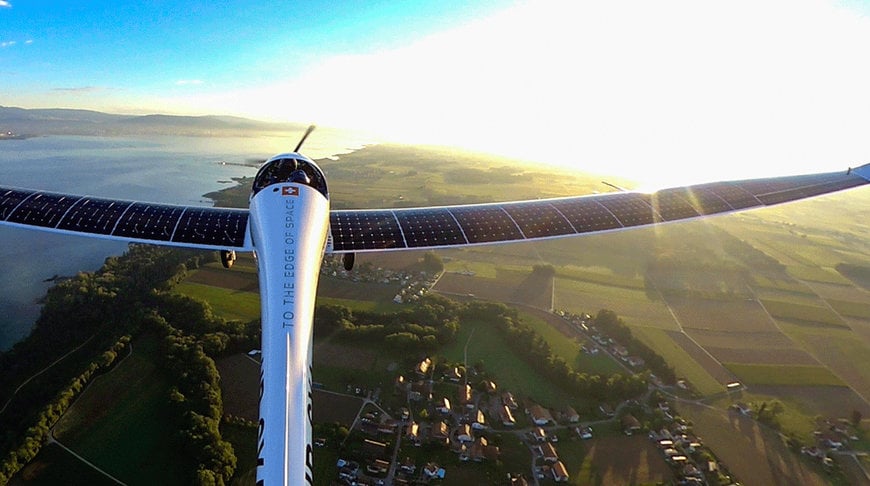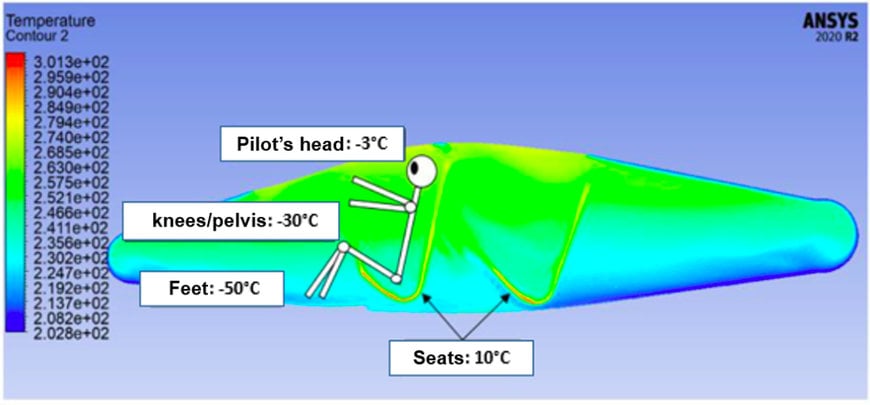www.industry-asia-pacific.com
12
'22
Written on Modified on
SolarStratos: SEGULA Technologies models cockpit temperatures
This is the first step taken by the SEGULA Technologies teams in the SolarStratos project. Their research has made it possible to define the characteristics and thermal conditions of a stratospheric flight.

The research carried out by SEGULA Technologies as part of the SolarStratos project has made it possible to define the physical properties of the stratosphere. This data has made it possible to obtain an order of magnitude of the possible temperatures of a stratospheric flight. The studies estimate a temperature of between -60° and 0° on average and up to -80° near the poles.
Research has focused on the thermal optimisation of the cockpit to guarantee the pilot’s safety and vital comfort. SEGULA’s collaborators working on the project have highlighted that the area most at risk is the pilot’s feet, where temperatures can reach -50°, compared to an average of -10° for the upper body. The planned spacesuit has insulating characteristics so that the pilot’s exposure is safe. However, long-term exposure could lead to permanent damage to the body.
The teams also estimated the solar flux to be 342W/m² on average. Solar radiation is particularly important in the research because it is the only source of heat for the pilot, apart from the spacesuit.
To obtain these results, the collaborators implemented a theoretical and numerical methodology. The theoretical research was based on the ISA (International Standard Atmosphere) atmospheric model, which describes variations in pressure, temperature, density and viscosity. For the numerical part, the teams used the CFD (Computational Fluid Dynamics) modelling method to obtain the coupling between the air movement and the associated heat transfers within the cockpit volume. Thus, a volume mesh was created from the 3D geometry of the aircraft to specify the temperatures around the pilot.

Continuation of the project
Thanks to the studies carried out on thermal characteristics and conditions, the collaborators will be able to analyse the physiological thermal behaviour of the pilot’s body. They will study the need for an additional heat source during flight. This analysis will be carried out with the help of the design of a digital thermal mannequin that takes into account the effects and characteristics of the human body.
In parallel, an in-depth study is underway on the incorporation of the spacesuit into the numerical model. The SolarStratos team, for its part, is setting up tests to validate the proper functioning of the spacesuit.
The SolarStratos project
Since September 2020, SEGULA Technologies has been the scientific and technical partner of the SolarStratos mission, which consists of using solar energy to fly an aircraft to the stratosphere. Its purpose is to demonstrate the potential of current technologies compared to fossil fuels and prepare for the mobility of tomorrow.
www.segulatechnologies.com

